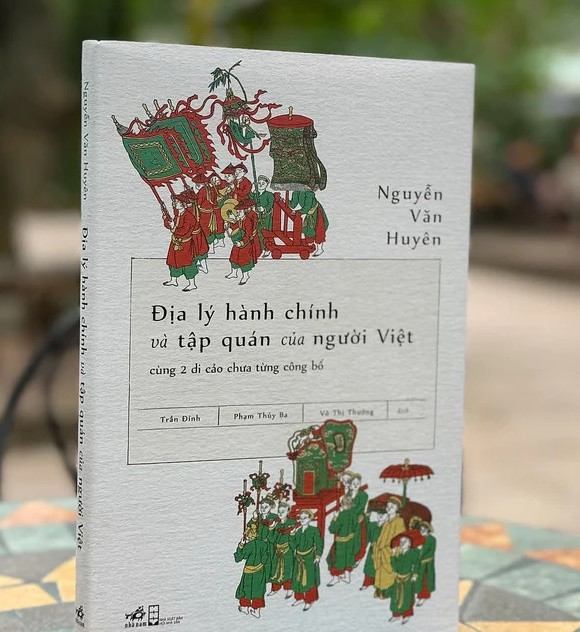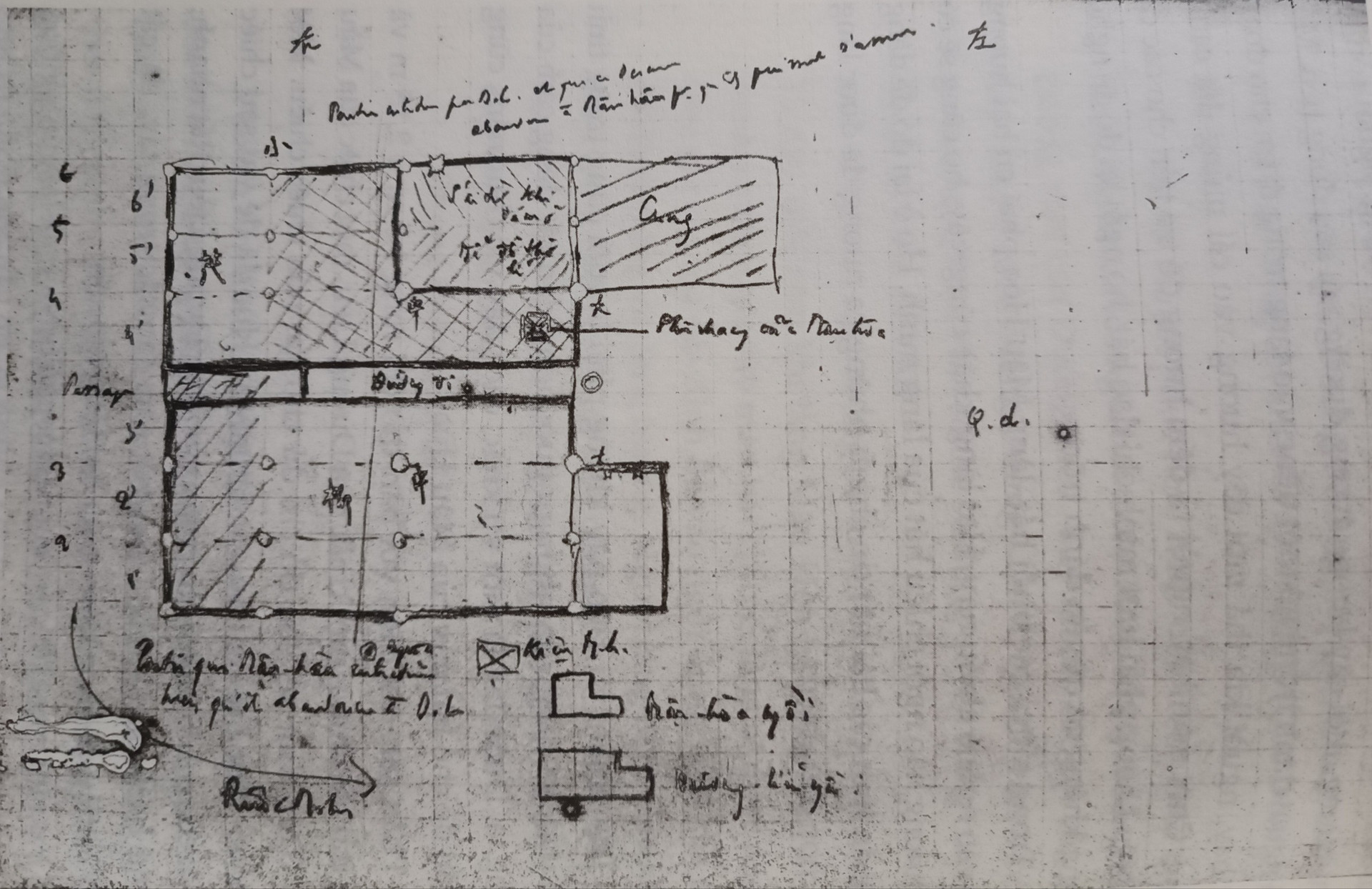Based on the posthumous works of scholar Nguyen Van Huyen (1905 - 1975), the publication "Administrative Geography and Customs of the Vietnamese" opened a unique approach to the issues of administrative units, residents' lives, and decentralization in the ancient society in the Northern countryside.

1.Published by the Writers Association Publishing House and Nha Nam, the book consists of two main parts. In the first part, Professor Nguyen Van Huyen focuses on the history of administrative division in Bac Ninh province. This part is translated from the manuscript of the book.Administrative geography picture of an ancient Vietnamese province: Bac Ninh Province (or Kinh Bac)written by him in French. Part 2 is a synthesis of the remains of the life, customs, and institutions of the people in Duong Lieu commune (formerly Dan Phuong district, Ha Dong province, now Hoai Duc district, Hanoi). Attached are some appendices related to the organization of examinations, the naming method in the Nguyen dynasty clan...
In fact, scholar Nguyen Van Huyen left behind many research works related to Kinh Bac land with the conclusion: "Current Bac Ninh province with areas including Thuan Thanh, Tu Son prefectures and Yen Phong, Gia Binh, Tien Du districts is the cradle of the Vietnamese people from which they spread out...". According to Associate Professor, Dr. Nguyen Van Huy, the scholar's son, this conclusion led his father to learn more about Bac Ninh, from which he gradually discovered the place considered the cradle of civilization of the Vietnamese people.
As Associate Professor Nguyen Van Huy shared, during his lifetime, his father always yearned to find the origin of Vietnamese history through the reflection of ethnological evidence. Among them, one of the most important evidences for Nguyen Van Huyen is the custom of worshipping the village's tutelary gods.
According to this scholar, the custom of worshipping village tutelary gods has remained almost unchanged throughout history, because it is associated with the formation of villages. And, by studying the layers of tutelary gods in different historical periods, it is possible to understand the formation of villages in a land in its early days. That is the reason why in the book, the author devoted much effort to researching the issue of village tutelary gods in both Kinh Bac and Doai - an ancient land also rich in cultural traditions.
2.In Xu Doai, Nguyen Van Huyen focused on researching 5 villages of Duong Lieu commune, including Yen So, Que Duong, Duong Lieu, Mau Hoa, Cat Ngoi. 2 out of 3 research articles on Duong Lieu printed in the book are articles in this publication, 2 of which are published for the first time. These are manuscripts of his presentations at the Louis Finot Museum around 1944, 1945. These presentations were like announcements of his latest research results at that time.
Previously, in 1938 and 1939, the French School of the Far East organized a large-scale investigation of village tutelary gods in the North and North Central regions, and then a campaign to collect village covenants.
Scholar Nguyen Van Huyen was responsible for processing and reporting the results of this investigation. Along with compiling and analyzing documents declared by dignitaries in the villages, he also spent a lot of time directly researching inscriptions, remaining documents, and doing fieldwork in the villages of that commune.
The unique feature of his research in the book is to help readers understand village life in depth, from history to the present. Typically, in the book, the connection in the village community in Duong Lieu is pointed out: It comes from the common worship of a tutelary god, Ly Phuc Man - a famous general in the Ly Nam De era. Therefore, although there are still many conflicts in daily life, the spiritual life here is closely connected. The rituals and customs related to worship are agreed upon by the villages and strictly followed.

On the other hand, in addition to Ly Phuc Man, each village worships other tutelary deities, thereby forming its own customs. Therefore, sometimes, conflicts will arise from those distinct personalities.
In addition, tensions between some villages also come from the geographical location of Duong Lieu commune on the banks of the Day River. With rich alluvial deposits here, people established villages, exploited fish, earned a living, and there was also a lawsuit in 1796 related to the settlement of fishing rights on Gia lagoon in this area.
Even within a village, there is a complexity in the distinction of classes. Through fieldwork, Nguyen Van Huyen discovered that the division of people into four distinct classes (scholars - farmers - workers - merchants) in contemporary society is very general and vague. In fact, when entering a village, this division does not have much value. Instead, the classes of the village institution are often based on the position of each person, especially the members of a faction (or even the ages of the members of a faction). This hierarchy determines the seating position in the village hall - which makes it easy for men to compete with each other.
As shared by the family, the handwritten copy found by scholar Nguyen Van Huyen about Duong Lieu seems to be incomplete because the last pages are missing. Therefore, at the end of the book, readers may be a bit disappointed when the book lacks a conclusion like other common research works.
But with what is left, it can still be affirmed: From a specific locality, this scholar has had quite clear and complete depictions of the picture of life in the ancient Northern countryside.
Scholar Nguyen Van Huyen's book raises many issues such as: How do villages in a commune unite with each other; The roles of women and men; The organization of the hamlet: The class system in the village community...